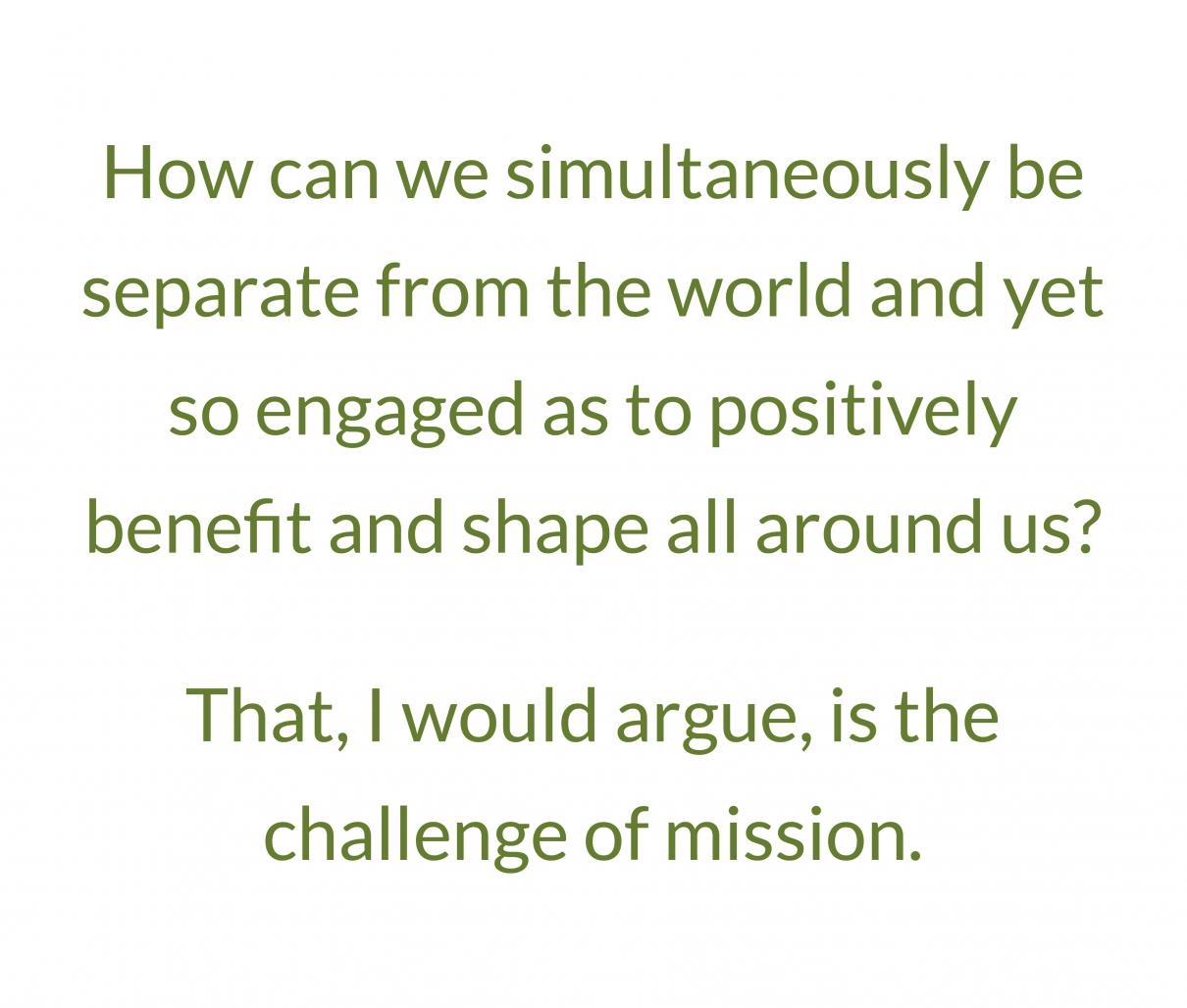
A Dedicated Task for a Dedicated People
In our walk through the Torah, we now come to what is probably the least known of the five books. While we remain captivated by the wonder of creation, the ups and downs of Abraham’s family history and excited by the narrative of Exodus, Leviticus seems largely forgotten by modern Christians. Yet according to former chief Rabbi, Jonathan Sacks, this was where ‘Jewish education traditionally began’ (pg3). He also explains how ‘Biblical literature often works on the principle of mirror-image symmetry (chiasmus), structured in the form of ABCBA’ (pg2). That makes Leviticus the central and therefore most important book of Torah. Or to borrow an image from my article on Genesis, Leviticus is the sharp end of the arrow that enables us to truly hit the mark of God’s purpose for our lives.
That said, it undoubtedly remains a challenge. Lack of narrative and cultural references far removed from what we know all give a sense of Leviticus being too difficult and therefore not worth the effort. However, if we make the effort, we can see how much Leviticus influences all Biblical faith and therefore remains relevant for us today. Probably the best-known chapter is 19. Derek Tidball points out that many ‘… who question the value of the rest of Leviticus see value here’ (pg232). It includes two of the best-known verses, which are regularly quoted in the New Testament, thus cementing their on-going relevance for God’s people today. But soon we realise there is creative tension.
Separate or Integrate?
Verse 2 tells us ‘You shall be holy, for I the LORD your God am holy’. This has always been an integral part of the identity of God’s people. The apostle Peter repeated it to his audience (1 Peter 1:16). Whatever else we need to do or be as Christians, we should strive for holiness. That much we know; but what is it exactly? Tidball states ‘At its heart, holiness is separation’ (pg31). OK - even a cursory reading of Leviticus emphasises the need to be different from the surrounding culture.
But then we are told in verse 18 ‘You shall love your neighbour as yourself’. This suggests a deep level of interaction. And that is where the tension lies - how can we simultaneously be separate from the world and yet so engaged as to positively benefit and shape all around us. That, I would argue, is the challenge of mission.

There is a danger that we seek a safe definition of neighbour - one which removes the tension. Something along the lines of us being a separate (holy) community, and then within that community of like-minded people we practice and express love. But then we come to the less remembered exhortation which shatters that possibility - you must also love the stranger as yourself (v.34). Jesus, in the Sermon on the Mount, does not allow his disciples to settle on comfortable interpretations, but exhorts them to apply his words to the utmost degree. He removes any possible wiggle-room in our interpretation of ‘stranger’ when he states bluntly ‘love your enemy’ (Matthew 5:44).
Consecrate Yourselves
Jonathan Sacks talks about three parts of Leviticus: ‘The first is about the holy… The second part is set at the boundary between the holy and the world… The third is about taking the holy into the world’ (pg4). He refers to Leviticus as ‘the first collective mission statement in history’ (pg51). Leviticus is clearly a continuation from Exodus (read Exodus 40: 34-38, then Leviticus 1:1; the transition is seamless). We can miss many details in Leviticus, but don’t miss this - Leviticus is about helping us to know how to be ‘a kingdom of priests’ (Exodus 19:5; 1 Peter 2:9), how to stand at that interface between the Holy One and the world around that needs to come to know the Holy One. Any outworking of our faith that does not take that into account simply misses the mark.
There is one final surprise at the beginning of Leviticus 19 which was truly revolutionary but easily missed. Moses is told to ‘speak to all the congregation’ and he hammers home the point by beginning – ‘Every one of you…’ Every ancient society had its priesthood whose priests were expected to live by different standards. But God had called Israel to be a ‘kingdom of priests and a holy nation’. The whole community is consecrated to God, called to live differently. But not just the community as a whole – each and every individual also has the responsibility before God to play their part; there are no exemptions.
A great privilege? For sure. Daunting? Undoubtedly. A challenge? Absolutely. But we have no other way to live if we want to be faithful to God’s word, if we want to ‘hit the mark’, fulfilling his purpose for our lives. When we set out on this journey, we can be sure of a glorious destination. But there will be pitfalls, trials and temptations along the way. Not all will be what we expect. Next time, the book of Numbers will help guide our path.
Sources/Further Reading:
Leviticus: The Book of Holiness, Jonathan Sacks. Maggid Books, 2015.
The Message of Leviticus, Derek Tidball. IVP, 2005.



